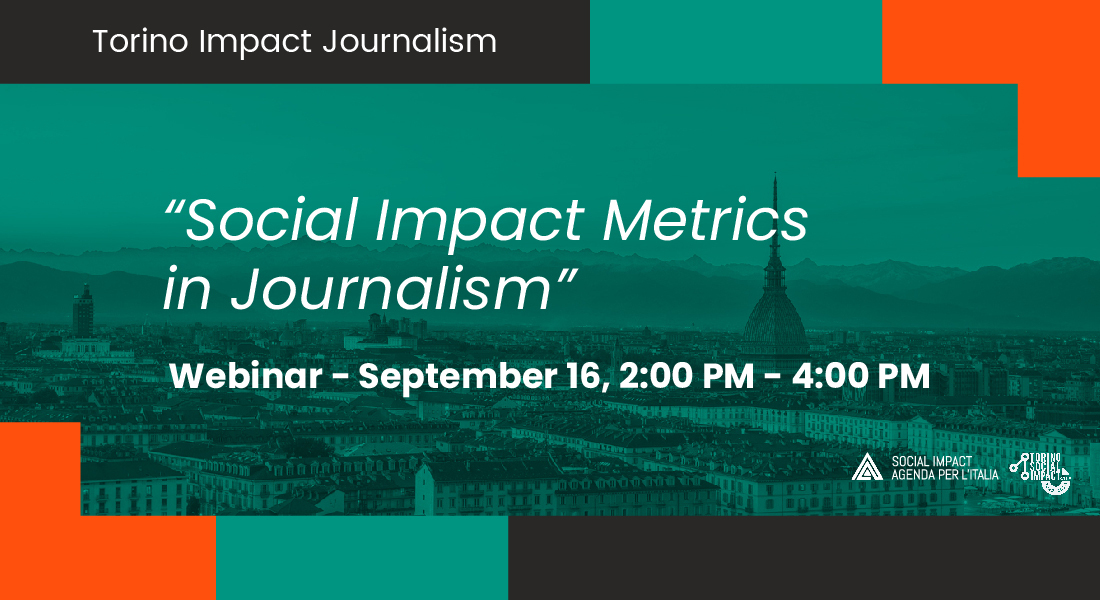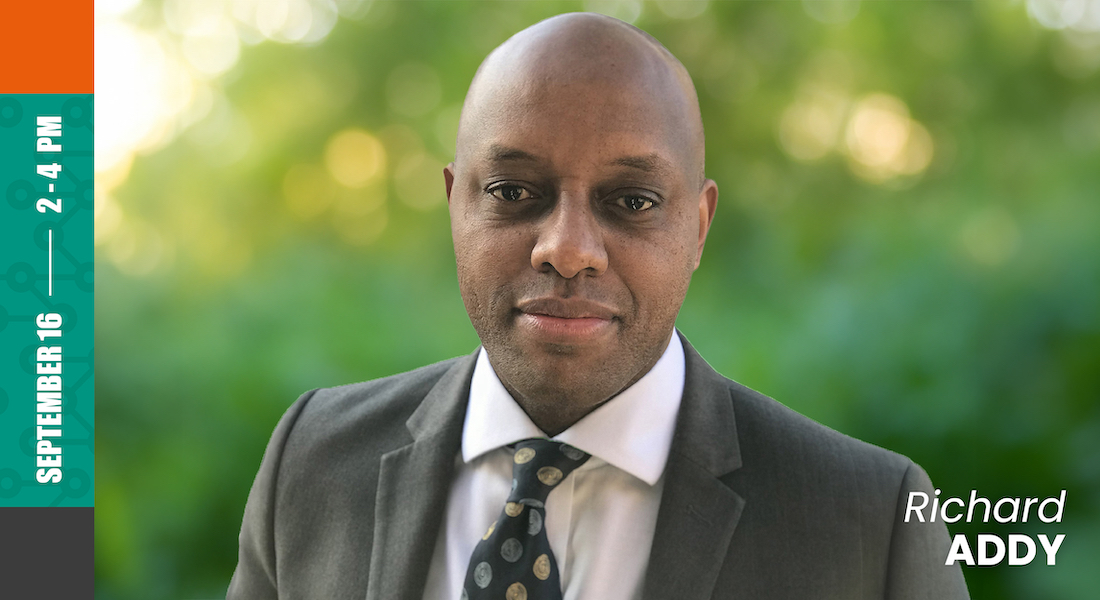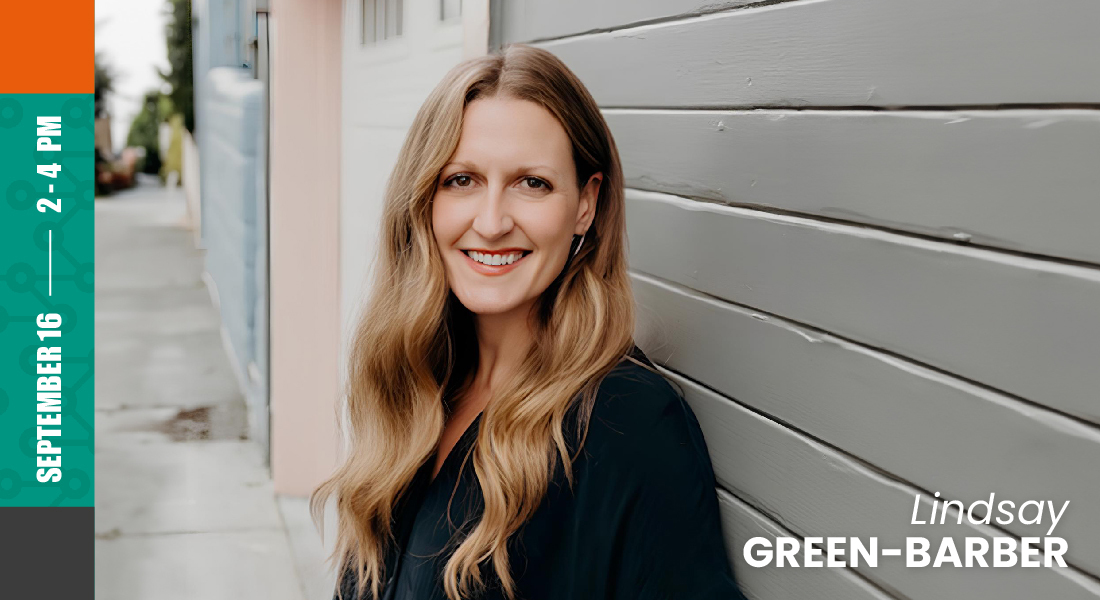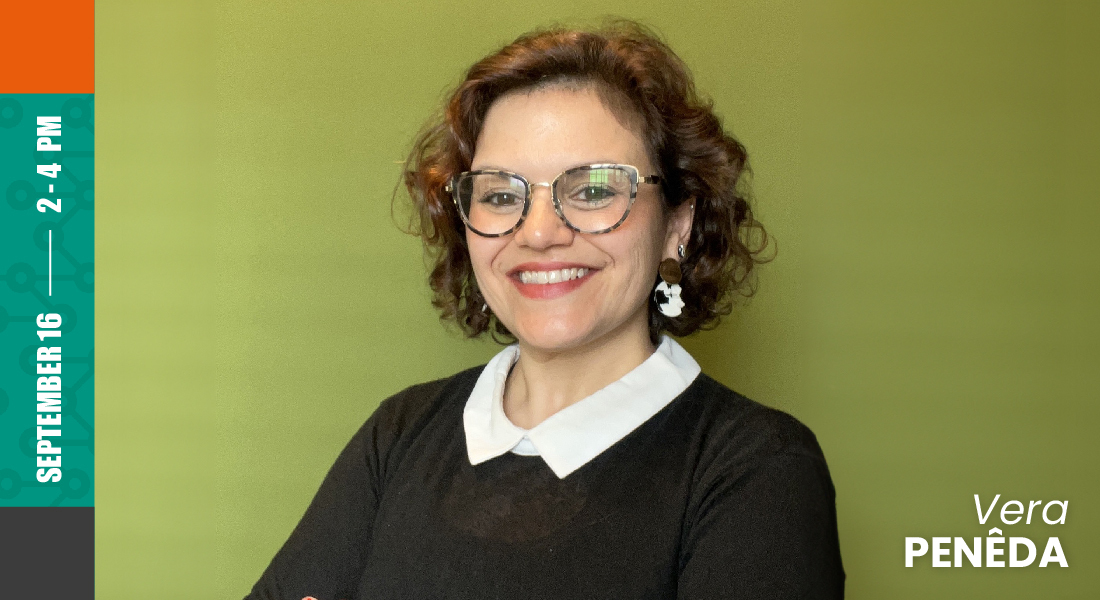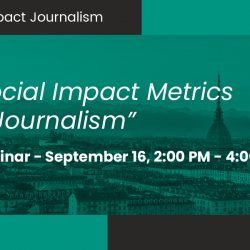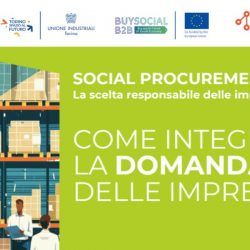On Monday, September 16, from 2 to 4 pm, the course “Social Impact Metrics in Journalism” was held: the second in a series of webinars as part of the Torino Impact Journalism initiative, sponsored by Social Impact Agenda for Italy, which aims to explore how journalism can promote change by engaging all sectors of society, from institutions to businesses, to address major environmental and social challenges.
Starting from metrics to build a culture of impact
Measuring the social impact of news is now a crucial aspect of journalism. News is widely evaluated in quantitative terms, following the logic imposed by the algorithms of major internet players. However, this approach risks overlooking the true value of journalism as an agent of social and economic change. Evaluating the social impact of news, emphasizing the importance of qualitative metrics that go beyond the number of views or shares, instead allows us to understand their concrete effect on communities and restore journalism to its original function: to spark reflections and positive actions in society.
Thus, the webinar “Social Impact Metrics in Journalism” brought together industry experts to analyze possible metrics for measuring social impact in journalism and provide practical tools for assessing how news affects the communities they serve.
Measuring the social impact of news: experts weigh in
More than 80 journalists, communicators, media experts, and interested parties participated in the webinar, organized in collaboration with the National Association of Journalists. The event, moderated by Paolo Piacenza, featured speakers with expertise in social impact, including Richard Addy, co-founder of Akas; Lindsay Green-Barber, founder and director of Impact Architects; Filippo Montesi, senior advisor at Human Foundation and general secretary of Social Impact Agenda for Italy; and Vera Penêda, director of programs and impact at the European Journalism Centre.
After an introduction by Paolo Piacenza, Filippo Montesi introduced the concept of social impact, with a deep dive into the concept of social value and the main impact metrics. He also provided an overview of how journalism can contribute to an economic paradigm shift toward more socially and environmentally sustainable development.
Lindsay Green-Barber, founder of Impact Architects, then discussed the use of digital tools in newsrooms to monitor the impact of news. On this occasion, she presented the *IA Impact Tracker* developed by Impact Architects, a free digital platform to help journalistic organizations, funders, and other stakeholders understand the impact of journalism by defining, measuring, and tracking real-world changes.
Richard Addy followed by sharing his decade-long experience in impact measurement, presenting the work of Akas, an international consultancy (of which he is a co-founder) specializing in audience strategy. Akas’ mission is to help organizations increase their impact to achieve their missions and visions. For the occasion, he presented the Impact Wheel, a tool useful for accurate and credible evaluation of the social impact of news. Through practical examples, Addy showed how the use of measurement techniques has influenced newsrooms’ work, helping them produce more relevant content for the public.
Lastly, Vera Penêda, representing the European Journalism Centre, shared her experiences in training newsrooms in impact journalism, providing tools and support to implement an impact-focused mindset. She provided key guidelines to help newsrooms and freelance journalists plan and measure the social impact of their journalism.
Overall, the national and international experts offered a comprehensive overview and concrete examples for reflection, starting from one certainty: in today’s landscape, measuring the social impact of journalism is not only possible but necessary to restore its central role in promoting sustainable and informed social development.
To learn more, don’t miss the upcoming webinars:
- November 11, 2-4 pm – Impact Journalism: Stories that Make a Difference
- December 2, 2-4 pm – Economic Sustainability of Impact Journalism


